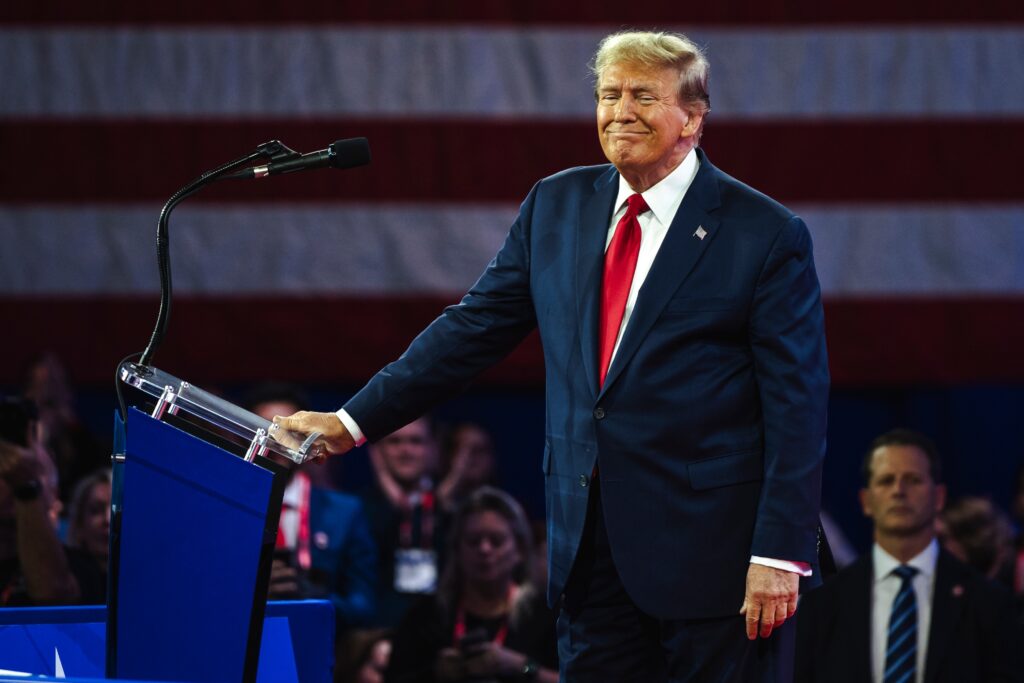President Donald Trump has announced a possible 50% tariff on goods from the European Union, increasing tension in an already strained trade relationship. The move follows what Trump calls a complete lack of progress in trade talks. If implemented, the tariffs would take effect on June 1, 2025.
In a statement shared on his social media platform, Trump said that the EU has taken advantage of the United States for years. He pointed to high value-added taxes, corporate penalties, and legal actions targeting American companies as major issues that have led to a trade imbalance.
He wrote, “Their powerful trade barriers and unjust lawsuits have created a trade deficit of over $250 billion with the U.S. Our discussions with them are going nowhere.”
Later on the same day, during a signing of an executive order, Trump confirmed his stance. “I’m not looking for a deal. We’ve set the deal — it’s at 50%,” he said, signaling that he is not willing to compromise unless the EU takes clear steps in response.
Trump hinted at a possible delay in the June 1 deadline. He said he might reconsider the timeline if European companies begin investing in factories or production facilities in the United States. “If somebody comes in and wants to build a plant here, I can talk to them about a little bit of a delay,” he stated.
In response, European Trade Commissioner Maroš Šefčovič held talks with U.S. officials including Trade Representative Jamieson Greer and Commerce Secretary Howard Lutnick. Šefčovič said the EU is still open to discussions but will not back down under pressure. “We stand ready to defend our interests,” he said.
U.S. Treasury Secretary Scott Bessent also criticized the EU, saying its trade proposals lag behind those from other global partners. “The EU proposals have not matched the quality of those from our other trading partners,” he said during a televised interview. “I would hope this lights a fire under the EU.”
Markets reacted quickly to the growing tensions. In Europe, the STOXX 600 index dropped 1.7%. Germany’s DAX index fell by 2.4%, France’s CAC 40 by 2.2%, and the UK’s FTSE 100 lost 1%. On Wall Street, the Dow Jones Industrial Average opened 480 points lower.
At the core of the disagreement are concerns about the trade deficit and Europe’s tax systems. According to the U.S. Commerce Department, the trade deficit with the EU stood at $236 billion last year.
Trump has been vocal about his frustration with value-added taxes (VATs) and digital service taxes (DSTs) in Europe. VATs apply at every step of the supply chain and often make U.S. products more expensive in the EU. DSTs target revenue from online services and impact large American companies such as Apple, Google, Amazon, Meta, and Microsoft.
A recent report from a U.S. research group confirmed that these companies pay a large share of DST costs, making the U.S. side feel unfairly treated.
As the conflict continues, the EU is preparing for a possible retaliation. The European Commission is considering a $108 billion tariff plan targeting both industrial and agricultural products if the talks fall apart.
Commission President Ursula von der Leyen said the EU had already offered a fair deal with a zero-tariff proposal. “All instruments and options stay on the table,” she warned.
Irish Prime Minister Micheál Martin criticized Trump’s hard-line approach, saying the suggested tariffs would hurt global trade. “Tariffs at the level suggested would harm one of the world’s most vital trading relationships,” he said.
French Trade Minister Laurent Saint-Martin also responded, saying, “We remain committed to de-escalation but are prepared to respond.”
Trump also raised the possibility of targeting Apple with new tariffs. He mentioned a 25% tariff if the tech giant does not move iPhone production to the U.S. Although Treasury Secretary Bessent noted that recent talks with Apple CEO Tim Cook had gone well, Trump remains upset that Apple is expanding production in India instead of relocating to America.
Earlier this year, the U.S. had briefly imposed a 20% tariff on EU goods but paused it to give negotiations a chance. So far, the only trade agreement reached has been with the United Kingdom.
Bessent said other deals are close, especially with India and some Asian countries. “With the exception of the EU, most of our key partners are negotiating in good faith,” he said. “We expect several major trade agreements to be announced in the coming weeks.”


